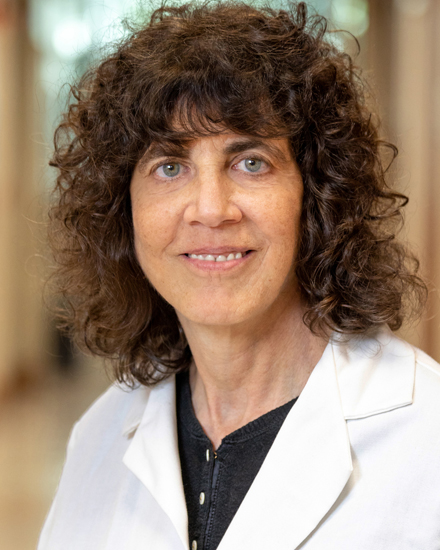
Roles
Professor of Neurological Surgery
-
Biography
Dr. Jacqueline Sagen is a Professor of Neurological Surgery at the Miami Project to Cure Paralysis. She received a B.A. in Neuroscience from Northwestern University, Ph.D. in Pharmacology from the University of Illinois College of Medicine and M.B.A. in Entrepreneurship from University of Illinois at Chicago. She joined the faculty at University of Illinois College of Medicine in the Department of Anatomy and Cell Biology as Assistant/Associate Professor (1986-1995). In 1995, she relocated to Providence, RI as Associate Director, Pharmacology and Behavioral Research, CytoTherapeutics, Inc and Adjunct Associate Professor of Cellular Technology, Brown University, prior to joining the University of Miami in 1998. Research in Dr. Sagen’s laboratory has been focused on exploring novel therapeutic strategies for chronic pain management that have the potential to provide sustained relief on a long-term or permanent basis. As chronic pain syndromes are often resistant to traditional pain interventions and/or limited by untoward side effects and possible analgesic dependence, the long term goal of work in her lab is to identify and develop more potent interventive approaches to improve the quality of life of these patients. A primary initiative in her lab is the generation of gene therapies and cell transplantation that can provide a continually renewable source of pain-reducing substances. The identification of superior alternatives to opioids, such as cannabinoids, is another current research focus. Dr. Sagen has published over 150 articles and book chapters and holds 6 patents in the field of novel pain therapies. She serves on numerous scientific review panels for NIH, DOD, VA, CIRM, and private foundations, and serves as faculty representative to the Federal Demonstration Partnership (FDP) and Board Member of the Consortium for Medical Marijuana Clinical Outcomes Research. -
Education & Training
Education
-
Research Interests
Chronic pain, such as that resulting from SCI or other injuries to the nervous system, is difficult to manage clinically and contributes to reduced quality of life and productivity. In addition, the presence of untreated pain can interfere with the ability to fully participate in rehabilitative strategies, thus limiting potential long-term gains in functional recovery. Pain due to injury to the nervous system is difficult to treat and pharmacological options for patients are marginally effective in the long term and fraught with unacceptable side effects. Our laboratory explores novel and more effective strategies in the therapeutic management of chronic pain and reduced reliance on opioids. Cell transplantation or gene therapy via direct delivery to the nervous system can provide a sustained and renewable source of pain-reducing agents at circumscribed nervous system sites, avoiding off-target side effects as well as potentially reversing underlying neuropathology. The overall goal of this research is to achieve improved and more permanent chronic pain alleviation by providing synergistic naturally-derived analgesic molecules to target and reduce persistent pathological pain processes. Towards this goal, our current research initiatives and challenges include development and assessment of more clinically relevant behavioral models for chronic pain with better predictive validity for clinical translation, discovery and characterization of novel mammalian and non-mammalian peptides that can be developed for long-term chronic pain management, design of synergistic combination analgesic gene constructs for cell transplantation or viral vector-based delivery, co-grafting supportive interactive cells derived from human iPSCs, and addition of exercise training to reduce inflammation and enhance analgesic benefits for overall long-term well-being. -
Publications
Disclaimer: The information presented in this section has been consolidated using AI and machine learning technologies. While every effort has been made to ensure accuracy, errors may occur. If you identify any inaccuracies, please use this link to inform our data team. Your feedback is greatly appreciated and helps us improve the quality of our content.

